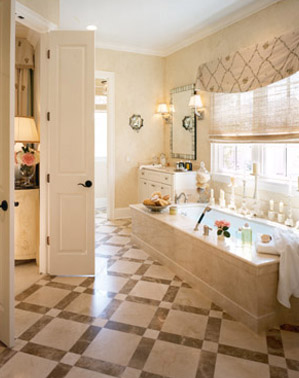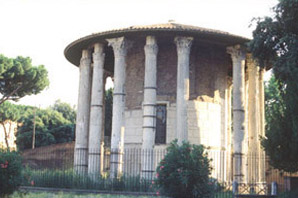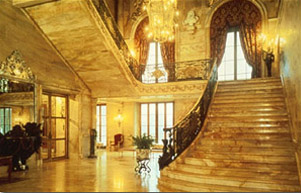Introduction to Natural Stone
Up to the minute knowledge about stone.
No floor covering is older than natural stone, more beautiful or more earthy. Natural stone was ancient man and woman’s design element, a primary material of construction and an original medium of creativity.
We know stone and understand well its features, advantages and benefits. We know how it is created and how to integrate it into your home and lifestyle.
Now, We want you to know.
We want you to know all about natural stone, to understand, learn and experience this historic and versatile product so you can decide if it’s the smartest flooring choice for you.
Why design with natural stone?
Well, for a number of reasons.
Natural stone is strong and stable to live with. It exudes a rich, organic, beautiful surface and has a confident, timeless “presence” in any room.
Rub your hand across any natural stone product. Can you feel the eons of time it took to produce this natural wonder of Mother Earth?
It’s a fact. The formative process for natural stone began millions of years ago, deep beneath the surface of the earth.
A combination of heat and pressure created blocks of natural stone, including granite, marble, travertine, limestone, and slate.
As the earth's crust began to grow and erode, it pushed minerals up from its core, forming massive rock deposits, which we refer to as “quarries”.
Walk across a natural stone floor and tread on the same material quarried and constructed by ancient people of nobility and notoriety.
From ancient monuments like the pyramids in Egypt and the majestic Greek and Roman temples, to the great civilizations of India and China, natural stone has been an important part of architecture throughout history.
It is the world’s oldest building material -- imagine its beauty and elegance in your new home.
How old? In 2500 B.C., Djoser’s Step Pyramid in Egypt, the first structure to be made entirely of natural stone, was constructed using huge blocks of granite and limestone.
Today, natural stone quarries are found in many countries throughout the world such as Italy, China, Spain, India, Canada, Mexico and also here in the United States.
Recent advances in the stone industry’s equipment technology have greatly impacted the process of extracting stone from the quarry and installing it in a home.
Modern tools can accomplish this with such speed and efficiency that now natural stone is accessible to all and is beloved for its durability, personality and aesthetics.
Indeed, nothing compares to the beauty of natural stone, and nothing can create pride quicker than when you walk into your home and onto a natural stone floor.
And while it is typically more expensive than ceramic tile, natural stone will virtually always increase your home’s resale value. That’s important to know when shopping.
Today, there is a large selection of natural stone to choose from, and we will be showing you and explaining about each stone family in detail.
In these sections on Natural Stone you can count on learning about granite, the hardest and densest stone, marble, known for its rich, luxurious quality, limestone, a softer, more porous stone, and the popular travertine.
We will also take an informative look at slate and tumbled stone, Canada’s favorites in rustic settings.
As a side note, you should be aware of a product called Manufactured Stone. (Also called Agglomerate Stone.) It’s a synthetic stone product that can be used for flooring and you can learn more about it in the How It’s Made section.
We invite you to discover the many wonderful facets of Natural Stone and see if it is the right flooring for you.





